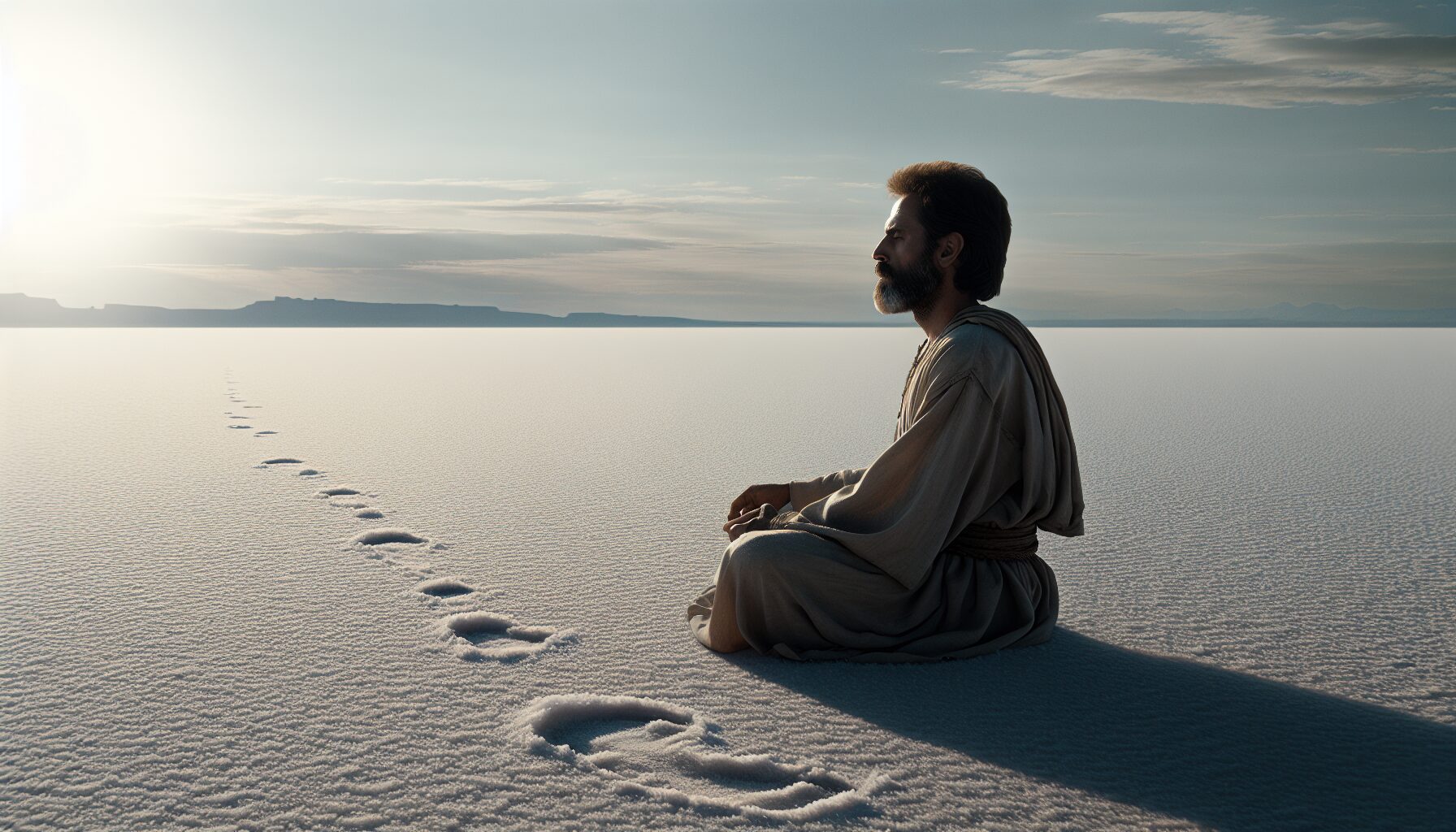Salt in the Spirit: Why Outcasts Often Become the Deepest Seekers
The journey of self-discovery and spiritual seeking often finds its roots in the most unlikely of places. History and literature have long celebrated the pilgrimage of the outcast, suggesting that those who exist on the fringes of society tend to embark on a profound quest for meaning. But why is this the case? Why do the marginalized and isolated often become the deepest seekers?
The Call of the Unseen
Outcasts, by the nature of their exclusion, often develop a heightened sense of introspection. As social scientist Brené Brown notes, “Connection is why we’re here. We are hardwired to connect with others, it’s what gives purpose and meaning to our lives” (HuffPost). When deprived of these connections, many turn inwards, seeking the solace and understanding they cannot find externally.
In this internal landscape, the search for spiritual truth and personal meaning becomes a refuge. Seclusion, whether self-imposed or circumstantial, provides the quiet necessary for deep reflection and the exploration of one’s spiritual path.
A Journey Born from Pain
Pain has long been a catalyst for transformation. The great spiritual teacher Eckhart Tolle explains, “The primary cause of unhappiness is never the situation but your thoughts about it” (Eckhart Tolle). This insight into pain becomes a guiding light for many who feel the sting of rejection and isolation.
“The wound is the place where the Light enters you.” – Rumi
For outcasts, pain is often a constant companion, yet it is this very pain that encourages a reevaluation of life’s deeper truths. Through suffering, outcasts are uniquely positioned to question the status quo of societal norms and values, seeking instead a spiritual grounding that brings peace amidst turmoil.
Embracing the Role of the Wanderer
Throughout history, wanderers and pilgrims have left behind the comforts of their known world in search of higher truths. Outcasts naturally adopt this role, not necessarily by choice but by circumstance. Whether it’s the desert fathers who fled to the wilderness or the sages of ancient East who sought enlightenment through solitude, the notion of separation from society to find spiritual clarity is a recurring theme in spirituality.
- Siddhartha Gautama: Before becoming the Buddha, Siddhartha left a life of luxury to seek enlightenment through self-imposed exile and meditation.
- Saint Francis of Assisi: After a dramatic conversion, he embraced a life of poverty and exclusion, founding a spiritual movement.
- Emily Dickinson: The reclusive poet who transformed her solitary life into a rich tapestry of poetry exploring themes of spirituality and existence.
In each of these cases, the struggle faced by these individuals outside the bounds of societal norms acted as the crucible for their spiritual insights.
Rejection as a Form of Freedom
Paradoxically, the rejection that defines an outcast can also free them from societal expectations, allowing space for authentic spiritual exploration. The lack of societal constraints can break down imposed narratives, offering a blank canvas upon which to craft a personal and unique path to spiritual awakening.
Thomas Merton, a Trappist monk and author, eloquently stated, “The greatest need of our time is to clean out the enormous mass of mental and emotional rubbish that clutters our minds” (Thomas Merton Center). Outcasts often engage in this decluttering, freed from conventional paths and open to novel experiences and thoughts.
Navigating Inner and Outer Realms
The spiritual path is not solely an internal journey. It involves navigating both inner realms and the external world. By living on society’s edge, an outcast perceptively walks between these worlds, often seeing truths hidden from those ensconced in societal comfort.
In embracing their status, outcasts can become conduits for renewal, knowers of paths not taken, and witnesses to the resilience of the human spirit. As spiritual seekers, they possess a unique viewpoint that can shed light on both personal and collective spirituality.
Conclusion
The journey of the outcast from the margins to the center of spiritual discovery showcases the transformative power of solitude, pain, and societal rejection. These factors combine to form a fertile ground for profound spiritual inquiry. As seekers of deeper truth, outcasts embody the spirit of exploration and transformation, highlighting that often the most profound awakenings occur in those who start from seemingly humble beginnings.
